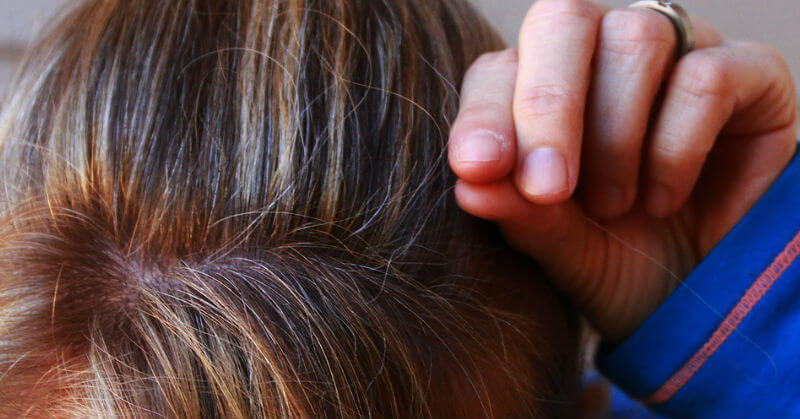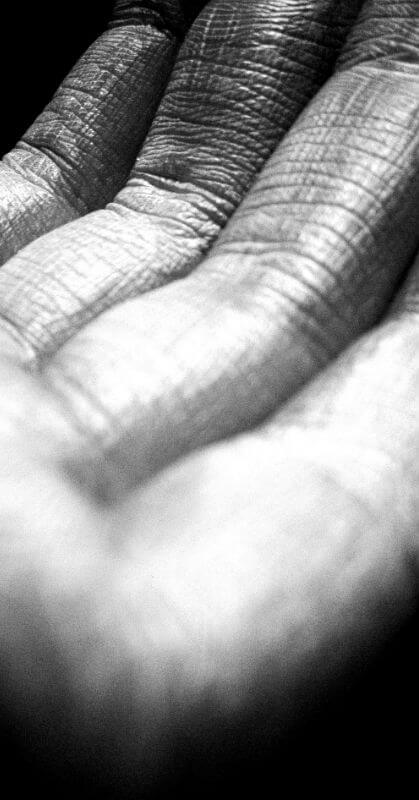5 Little Signs You Are Aging – And What To Do About It
Oh Lardy! is a participant in the Amazon Services LLC Associates Program, an affiliate advertising program designed to provide a means for us to earn fees by linking to Amazon.com and affiliated sites.

At 33, I don’t feel old. Quite the opposite really — I often wonder just when it is I’m finally going to feel like an adult. That said, I’m definitely starting to see (and feel) the signs of aging. There are fine lines forming around my eyes, I have streaks of grey running through my hair, and, at times, the simple act of grocery shopping seems to drain me of energy. Whatever my mental state, my body is showing that I’m no longer as young as I once was.
Living in an ageist culture, it can be hard to accept such things. However, I’ve found that by setting aside the societal demands of physical appearance and instead focusing on improving my health, aging doesn’t seem as terrifying as it has in the past.
If you’re concerned over changes in your body, relax, take a deep breath, and concentrate on your health first. Consider the following five signs of aging, and how you can best handle them.
Deteriorating Vision
Age brings many changes that affect your eyesight. Presbyopia — the most common — is the slow loss of the ability to see small print and other close objects. Fortunately, reading glasses can fix the problem licketdy split.
However, there are serious conditions that can arise with age, such as age-related macular degeneration or diabetic retinopathy. The best way to avoid these problems is by getting regular eye exams. The American Academy of Ophthalmology recommends that all adults (even those without symptoms) have a comprehensive eye exam by age 40. After the baseline exam, comprehensive exams should be scheduled:
- Every two to four years until you’re 54
- Every one to three years until you’re 65
- Every one to two years after age 65
More frequent eye exams may be needed if you have a disease that affects your eyes, such as diabetes. If you work with computers, you’ll want to take special care to ensure you’re not straining your eyes. Maintain a healthy distance from the screen (20-28 inches), adjust the brightness of your monitor, and take a break to look away from the computer every 20 minutes.
Fine Lines and Wrinkles
General muscle movement, gravity, acne, and sun damage — all of these things can lead to the formation of fine lines and wrinkles. What’s more, as we age, our skin loses collagen, which is the protein responsible for creating a smooth, tightened surface. This means everyone is susceptible to fine lines, sagging, and sunken areas on their face and body.
Perhaps this inevitability is why the anti-aging industry has only continued to grow larger with each passing year. Unfortunately, thanks to questionable marketing tactics, you simply can’t trust most of the claims made by popular brands.
However, according to dermatologists, there are some ingredients and products that produce results:
- Moisturizers will temporarily plump the skin and make it less prone to developing fine lines.
- Retinoids and Retinol stimulate collagen renewal and prevent skin cells from breaking down.
- Alpha-hydroxy acids (AHAs) exfoliate the skin, leaving it looking brighter and more dewy.
- Antioxidant creams neutralize the effect of free radicals on skin.
- Sun damage is the number one cause of wrinkles. No matter your age or the weather, you can prevent skin damage by wearing a sunscreen with a sun protection factor (SPF) of at least 30 every day.
It’s also important to avoid smoking. Smoking reduces blood flow and oxygen to your skin, making you more prone to broken capillaries and veins and increasing the time it takes for your skin to heal (meaning you’re more likely to scar). Furthermore, the chemicals in cigarettes destroy collagen and elastin, leading to sagging skin uneven skin coloring. Finally, cigarette smoke not only increases the number of free radicals in your skin, it also depletes the natural antioxidants in your body needed to absorb them. Fortunately, as soon as you stop smoking, your skin will begin to heal itself.
Grey Hair
When you go grey is largely genetic. This means that if your parents or grandparents went grey at an early age, you probably will too. Since the process is genetic, there's not much you can do to stop or slow it. However, it’s up to you to decide how you want to deal with it.
Dying your hair is always an option. If you’re relatively young, you may want to dye all of your hair. However, if you’re middle aged or older, you may want to go for a more understated look. Hairdresser Josh Wood recommends using a fine toothed comb to skillfully blend color back into the hair. This creates a more natural look than simply applying dye to the whole head.
That said, dying your hair regularly is both high maintenance and extremely expensive. If you’re like me and love the look of grey hair, you could embrace this beautiful sign of age. Keep your grey hair shiny and strong by using brightening shampoos and leave-in conditioning treatments.
Lack Of Energy
Feeling tired and being “old” are so commonly linked in our minds that we just accept a lack of energy as a normal part of aging. While it’s true that aging cells are less efficient and don’t function as well as younger cells, they are heavily influenced by our lifestyle. Consequently, there are multiple changes that can be made to stop the loss of energy with age.
First and foremost, age has a profound effect on the circadian rhythm. This can cause us to sleep and wake earlier, and to spend less time in deep sleep. Sleep quality can be improved by maintaining a regular bedtime schedule, as well as relaxing before bed. An increase in magnesium intake can help calm nerves and relax the muscles.
As we age, our muscle mass begins to steadily decline. Muscles lose strength and flexibility as they shrink, which means they also become fatigued more easily. These changes take place far more quickly if you lead a sedentary life. By maintaining an active lifestyle and focusing on strength training exercises, you can reduce the rate of muscle loss and improve your endurance.
Finally, aging affects our brains, causing some of the connections between neurons to become less efficient or broken. This may lead to mild memory loss, difficulty maintaining concentration, and taking longer to learn new things. It’s important to keep your brain active on a daily basis. You can do this by playing brain training games on the internet, trying out a new skill or hobby, or leaning a new language.
Thinking About “The End”
There’s more to aging than physical changes. As we get older, we begin to experience frequent medical problems and the loss of loved ones. These issues remind us that the end of life is drawing nearer. And for many, this can be distressing.
We live in a culture that denies death — we don't like to talk or think about it. Death makes us feel uneasy, and so we tend to to push those thoughts away. But death and dying are an inevitable part of life. The key is to be deliberate — actively engage with thoughts of death, even if it’s hard. The more we think about something, the less frightening it becomes.
One way to deal with death in a proactive way is to take care of your estate planning. Prepare a will, a trust (if needed), and set up your power of attorney. Make plans for how you’d like your memorial service to be run and how you want your remains dealt with. Plan death as you would any other major life event, like a wedding or the birth of a child. Accept that there are some things you can’t control (such as when and how you go), but that there are others you can actively manage. This will help ease your anxiety.
Conclusion
There is absolutely nothing wrong with aging. It's a beautiful, natural part of life, one we should embrace instead of shrinking from. As with all things, our focus when aging should be on our health. Leave vanity and ego at the door and welcome the wonders of age with open arms.
Pin It!
Liz Greene is a dog loving, beard envying, pop culture geek from the beautiful city of trees, Boise, Idaho. You can catch up with her latest misadventures on Instant Lo or follow her on Twitter@LizVGreene.


I enjoyed reading this, Tamara! 🙂 Aging and so as death are inevitable but that doesn’t mean we shouldn’t be prepared. I definitely agree, embrace aging. Age with grace my mom would say 🙂
Thanks for sharing.
Cheers,
Jessica
Thanks, Jessica!
Nicely said.
Getting older is getting wiser.
Feel free to check out the reasons why and what aging does to your body!
Thanks for sharing Tamara.
Cheers,